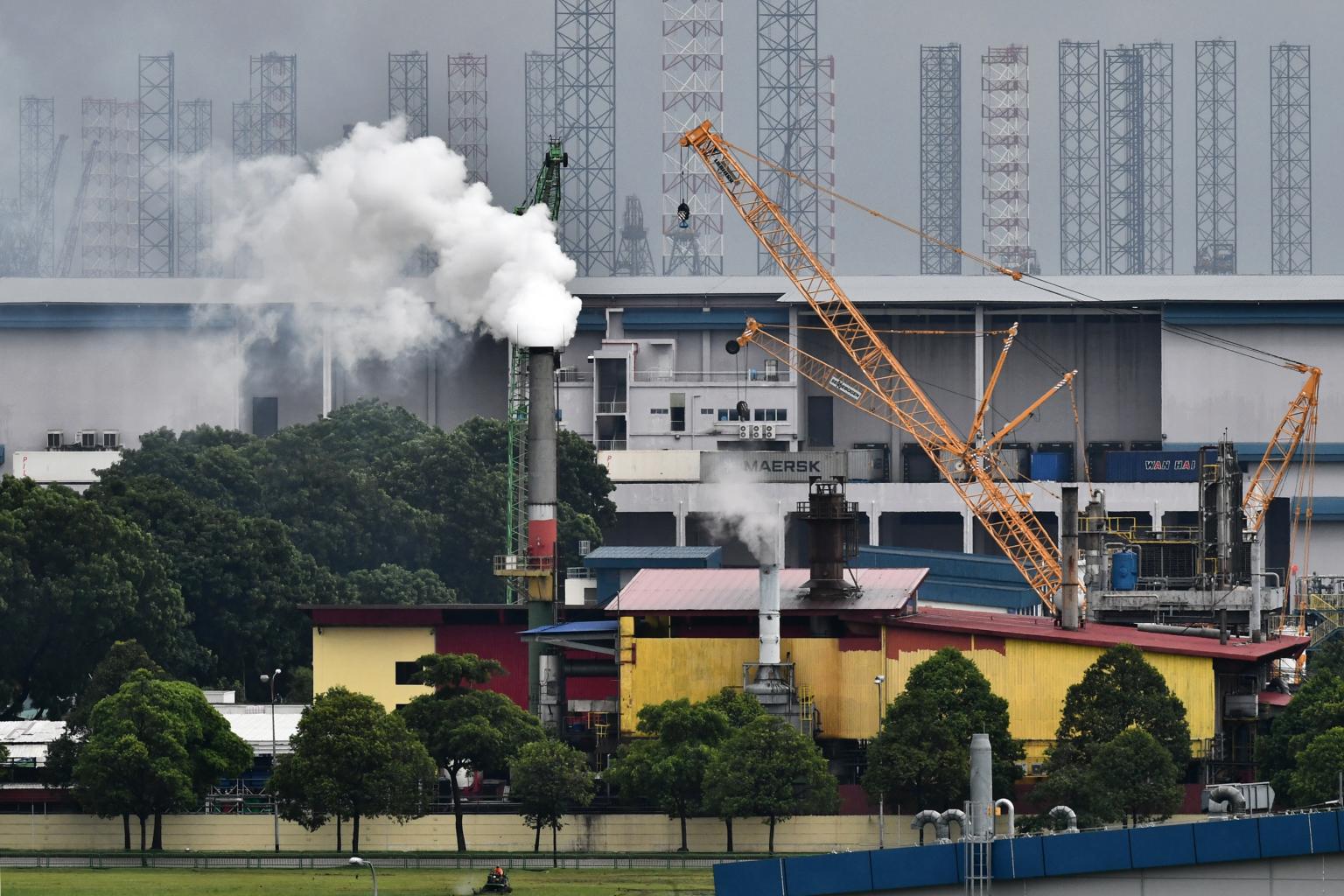Cutting carbon a new focus area for Singapore under five-year research masterplan
Sign up now: Get ST's newsletters delivered to your inbox

Human activities, such as the burning of fossil fuels, are contributing to climate change. -- for carbon emissions
ST PHOTO: LIM YAOHUI
SINGAPORE - Reducing emissions from human activity will be a new research focus for the country as it takes efforts to survive and combat climate change into higher gear.
Research into urban solutions and sustainability is one of the four key research domains under Singapore's $25 billion Research, Innovation and Enterprise (RIE) 2025 plan announced on Friday (Dec 11).
The push comes amid growing consensus that both the Covid-19 pandemic as well as climate change can be tackled simultaneously to create new jobs and greener economies.
"Decarbonisation is one of our new focus areas in RIE2025, and will be a key addition to our sustainability efforts," said Dr Yeoh Lean Weng, senior director for urban solutions and sustainability at the National Research Foundation (NRF).
Other new focus areas include climate science, developing healthy cities, and enhancing the efficiency and productivity of the built environment.
Previously, Singapore's sustainability solutions had focused on water security, boosting energy efficiency in buildings, and solutions to make developing infrastructure more cost-efficient.
But Dr Yeoh said that under the new research blueprint, more studies into low carbon alternatives, such as hydrogen and carbon capture, utilisation and storage, would be done.
This will position industries in Singapore to be competitive in a low carbon future, and also support the country's international commitment to achieve net-zero emissions as soon as viable in the second half of the century.
Worldwide, there is a growing view that two crises - the pandemic and climate change - can be tackled simultaneously by rebuilding economies that are greener and more resilient, and creating new jobs and less destructive industries.
Climate change and its impacts, such as erratic rainfall patterns and extreme weather events, could wreak similar havoc on economies and societies as Covid-19.
Human activities, such as the burning of fossil fuels and deforestation, are contributing to climate change by releasing heat-trapping emissions into the atmosphere.
Some countries have responded by rolling out green stimulus plans that include research into clean energy solutions.
Germany, for instance, committed €130 billion (S$210 billion) to pandemic recovery, with about 30 per cent to be spent on activities that will cut emissions, Bloomberg reported. This includes federal funds for the conservation and sustainable management of forests, and investing in renewable energy.
But the NRF said in response to queries from The Straits Times that many countries' green recovery plans include funds for capital expenditure in the deployment of green technologies, such as building energy efficiency measures, public transport infrastructure, or subsidies for solar photovoltaic systems deployment.
These go beyond research and development, and so should not be directly compared to the RIE budget, said the NRF spokesman.
Minister for Sustainability and the Environment Grace Fu said during Friday's event that it was crucial for Singapore to focus on the pressing issues of climate change, decarbonisation, healthy cities, and the built environment
"Some may require long-term R&D investment and effort, before we can reap tangible outcomes," she said.
But she noted that outreach efforts must continue in tandem with research.
"To tackle such complex, cross-cutting challenges, we must also look for solutions beyond the natural sciences and engineering," she added.
"We will tap on other disciplines, such as social and behavioural sciences, since influencing human behaviour is key to creating real change."


